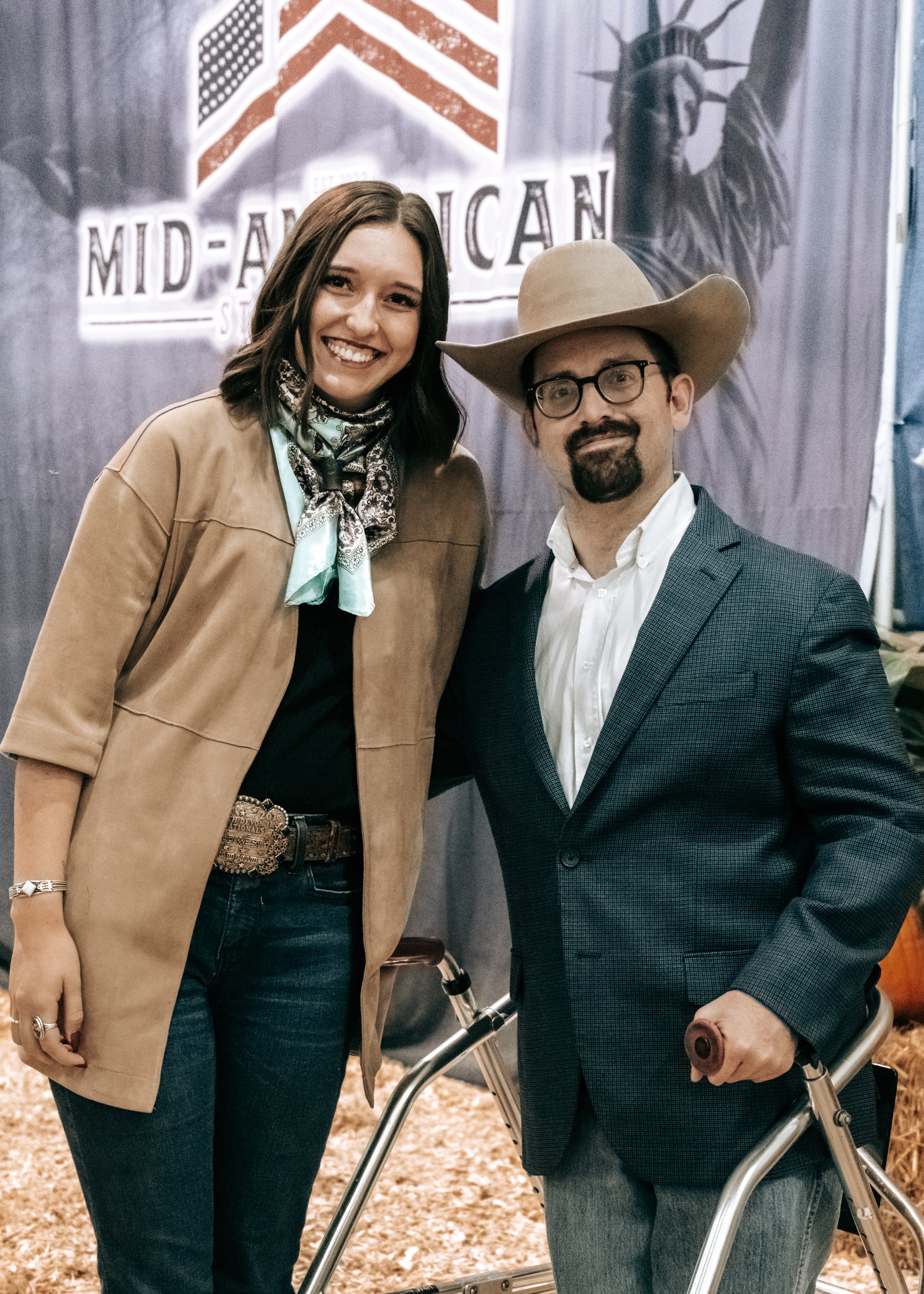Building Success Despite Disability | Clinton Laflin
A Fifth-Generation Angus Breeder's Journey of Overcoming Challenges, Embracing Uniqueness, and Inspiring the Next Generation
Host lauren Moylan, article written By Gracelyn Boren
Clinton Laflin, a fifth-generation Angus breeder from Kansas, is a testament to resilience and dedication. Operating C Bar L Cattle Company and working as a livestock extension agent at Kansas State University, Clinton has a long family legacy in cattle ranching. His father’s family raised registered Angus, while his mother’s family worked with commercial cattle. Yet, his journey is unique—not only because of his deep agricultural roots but because of the obstacles he’s overcome along the way.
Clinton was born with a mild case of cerebral palsy, which means he needs a cane or walker to assist with his mobility. Despite these physical challenges, he credits his success to his supportive family and a mindset focused on problem-solving and adaptability. His family has played a crucial role in helping him gain independence, encouraging him to actively participate in their cattle operation.
For Clinton, cerebral palsy has presented both challenges and advantages. Although he initially hesitated to take risks, he now views his differences as a source of strength. Clinton aspires to demonstrate to young people that they can achieve success in agriculture, regardless of their backgrounds or limitations. As a dedicated extension agent, he is determined to challenge stereotypes and show that agriculture is accessible to anyone willing to work hard and think creatively.
Clinton’s journey highlights the diverse paths available in agriculture. He believes that involvement in the industry can take many forms, whether it’s managing a large cattle operation, maintaining a backyard herd, or advocating for agricultural issues.
One important focus of Clinton’s advocacy is mental health within the agricultural community. He recognizes the unique stressors that come with farming and ranching and encourages individuals to reach out, share their challenges, and seek support. Clinton emphasizes that no one in the agriculture sector should feel isolated. He urges producers to rely on one another and find strength in shared experiences.
Clinton is actively involved in youth development through organizations like 4-H, where he helps kids get started with livestock. His efforts go beyond merely teaching them how to raise animals; he aims to instill resilience, foster adaptability, and encourage them to believe in their potential. He emphasizes that personal growth and responsibility are essential to achieving success in agriculture.
For Clinton, lifelong learning is essential. In his role at Kansas State, he connects farmers and ranchers with research-backed solutions, helping them navigate industry challenges like drought and market fluctuations. He believes that adaptability and continuous learning are critical to surviving in a rapidly evolving field.
Networking has been a crucial factor in Clinton's success. Through his involvement with organizations such as the National Junior Angus Association and participation in livestock events, he has built valuable connections that have greatly benefited his career. He emphasizes that in-person networking is extremely important, as it has enabled him to form partnerships, secure judging opportunities, and enhance his understanding of the industry.
Clinton emphasizes the importance of embracing change in the dynamic field of agriculture. He warns that remaining stagnant can be detrimental to success. He encourages young people to take risks, view failure as a valuable learning opportunity, and cultivate a positive mindset. Clinton's journey illustrates that with determination, a strong support system, and a willingness to grow, individuals can find purpose and fulfillment despite facing obstacles.
Clinton's Links:
Facebook - https://www.facebook.com/clinton.laflin
Linkedin - https://www.linkedin.com/in/clinton-laflin-231a322b/
Contact through Extension - https://www.midway.k-state.edu/livestock/index.html
